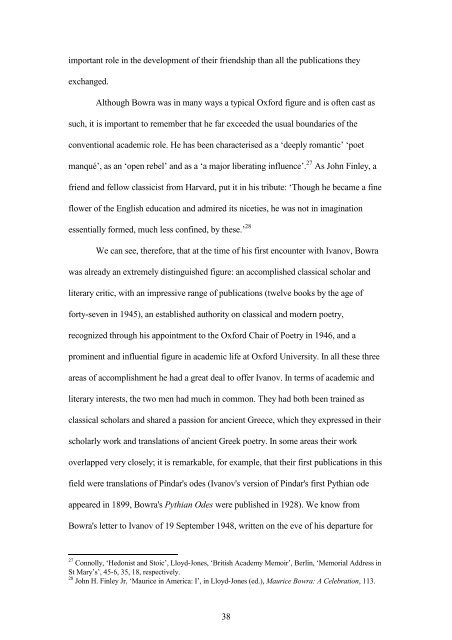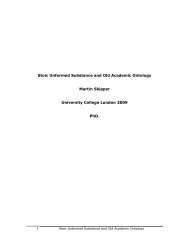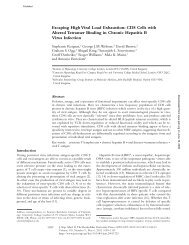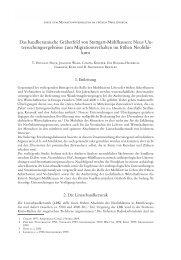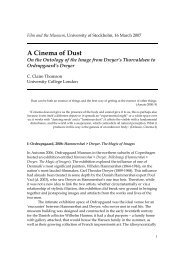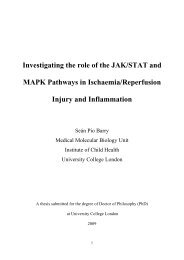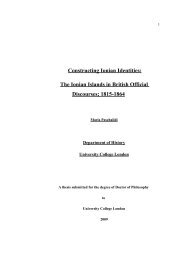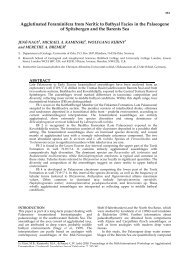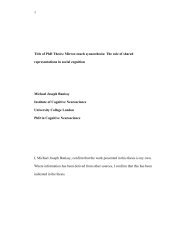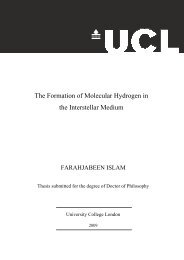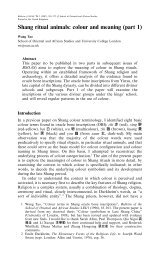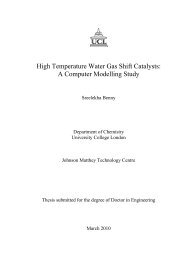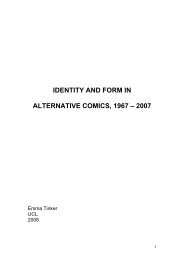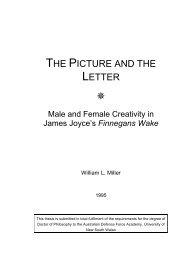Vyacheslav Ivanov and C.M. Bowra: a ... - UCL Discovery
Vyacheslav Ivanov and C.M. Bowra: a ... - UCL Discovery
Vyacheslav Ivanov and C.M. Bowra: a ... - UCL Discovery
Create successful ePaper yourself
Turn your PDF publications into a flip-book with our unique Google optimized e-Paper software.
important role in the development of their friendship than all the publications they<br />
exchanged.<br />
Although <strong>Bowra</strong> was in many ways a typical Oxford figure <strong>and</strong> is often cast as<br />
such, it is important to remember that he far exceeded the usual boundaries of the<br />
conventional academic role. He has been characterised as a ‘deeply romantic’ ‘poet<br />
manqué’, as an ‘open rebel’ <strong>and</strong> as a ‘a major liberating influence’. 27 As John Finley, a<br />
friend <strong>and</strong> fellow classicist from Harvard, put it in his tribute: ‘Though he became a fine<br />
flower of the English education <strong>and</strong> admired its niceties, he was not in imagination<br />
essentially formed, much less confined, by these.’ 28<br />
We can see, therefore, that at the time of his first encounter with <strong>Ivanov</strong>, <strong>Bowra</strong><br />
was already an extremely distinguished figure: an accomplished classical scholar <strong>and</strong><br />
literary critic, with an impressive range of publications (twelve books by the age of<br />
forty-seven in 1945), an established authority on classical <strong>and</strong> modern poetry,<br />
recognized through his appointment to the Oxford Chair of Poetry in 1946, <strong>and</strong> a<br />
prominent <strong>and</strong> influential figure in academic life at Oxford University. In all these three<br />
areas of accomplishment he had a great deal to offer <strong>Ivanov</strong>. In terms of academic <strong>and</strong><br />
literary interests, the two men had much in common. They had both been trained as<br />
classical scholars <strong>and</strong> shared a passion for ancient Greece, which they expressed in their<br />
scholarly work <strong>and</strong> translations of ancient Greek poetry. In some areas their work<br />
overlapped very closely; it is remarkable, for example, that their first publications in this<br />
field were translations of Pindar's odes (<strong>Ivanov</strong>'s version of Pindar's first Pythian ode<br />
appeared in 1899, <strong>Bowra</strong>'s Pythian Odes were published in 1928). We know from<br />
<strong>Bowra</strong>'s letter to <strong>Ivanov</strong> of 19 September 1948, written on the eve of his departure for<br />
27<br />
Connolly, ‘Hedonist <strong>and</strong> Stoic’, Lloyd-Jones, ‘British Academy Memoir’, Berlin, ‘Memorial Address in<br />
St Mary’s’, 45-6, 35, 18, respectively.<br />
28<br />
John H. Finley Jr, ‘Maurice in America: I’, in Lloyd-Jones (ed.), Maurice <strong>Bowra</strong>: A Celebration, 113.<br />
38


